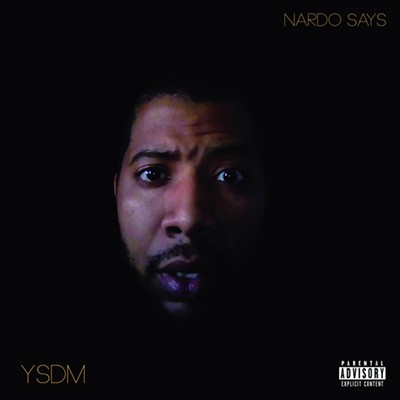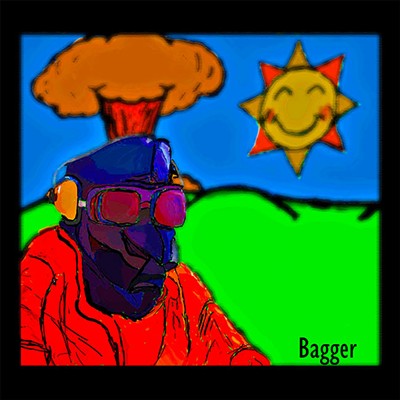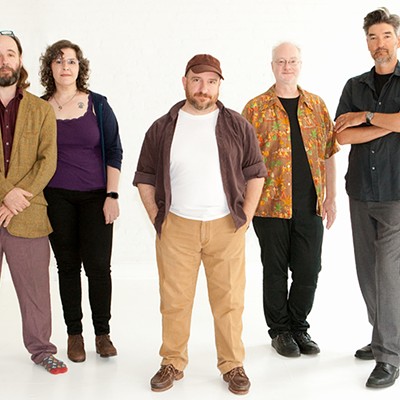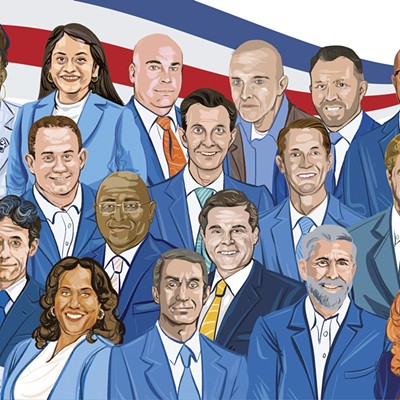Tuesday, April 29, 2008
Interview: Sasha Frere-Jones, part 3
Note: This concludes my three-part discussion with pop critic Sasha Frere-Jones.
CP: One of the most well-known and controversial pieces you've written recently was last fall's "A Whiter Shade of Pale," which generated a lot of talk.
SFJ: Yeah, it comes up.
CP: There was a lot of internet backlash. Did you anticipate that, and was it warranted?
SFJ: I knew people were going to get heated up about it. I didn't make up the title or the subtitle – I thought the title was clever enough, but I hated the subtitle, "Indie rock loses its soul." It's just not what I said or what the piece is about. I think that created problems for me and it's not said anywhere in the piece.
The problem with the piece – I mean, I have my own problems with it, though I largely think it's right, which is why I wrote it – the ending was a bit rushed because of logistical reasons. These tiny things end up being life-changing, like you're building, and you run out of money so you skimp on fireproofing and your entire building burns down. That's sort of overstated. But the ending – the timeline was sort of messed up; the piece is really mostly about the '90s and the very early '00s, because I think the current indie situation is much more schizophrenic and changed.
I kind of wanted it to be a little bit of a . . . maybe a smaller I.E.D., not a huge explosion – but I wanted it to get at people and I wanted it to be accessible, and I didn't want it to be too insidery so it had to have some heat to it. But some of the criticisms were just bonkers, like that I'm a racist or that it's too essentialist. It's a piece that's very specific about music. If you go back, you will not find any generalizations about people in it. Because I wasn't generalizing about people, I was trying to theorize about what happened to – a really simple way of putting the question is, why is indie rock called indie rock? What is it? People seem to know what it means; it's one of the vaguer terms, it's not the greatest one, so wide right now, but it became a thing, and it became clear over time that what it was was music that had subtracted . . . the shortest way to say it is, the blues, and everything that came out of the blues: soul and funk and so on.
Now, that's not necessarily a bad thing, maybe it seems in the piece like I think it's a bad thing because my preferences run toward the African-American musical tradition, but I was really more fascinated that it had happened. I thought people would get the opening, which was, I chose a band [The Arcade Fire] that I had just written a very positive piece about, and it's still there in the writing for me but it didn't work for a lot of people – I found myself thinking, here's a band I like, but their musical composition is so different from the version of this band I would've seen 20 or 30 years ago. Something has really changed, almost in the physical composition, almost like examining a plant and saying, "Oh my god, the soil no longer has zinc in it, look at this plant."
And I think the reason that a lot of people were confused is that I also had a lot of my preferences in the piece and I think it just got reduced to "You just want there to be black music in everything!" I can understand why people think that, I take most of the blame myself – I'm not really worried about it, if people think certain things about me that's fine, it doesn't bother me, but I might've been a little more surgical about separating – here's the progression I saw, this music progressed and seemed to be losing this musical strain.
People say crazy shit about it – that I was accusing indie rockers of being racist, when I was if anything accusing them of quite the opposite, of being so conscious of racial issues because of the political mode of the '80s that kids – and I think this is true – didn't want to risk doing anything that was even remotely racist. So it's easier to not engage. It's a guess but I think it's true, so it's the opposite of me thinking everyone is racist. And it was interesting because indie rockers had to find other stuff to draw on. But one thing that I'm happy to lean on, or draw from, is that if you're going to play popular music in this day and age in America, kind of a lot of the best stuff – young black folks made that stuff up. And if you're really, intentionally or unintentionally, avoiding that entire chunk of material, you're gonna have to be really really good, because . . . it's good to fall back on a few tricks that have been around for a long time.
And there's been a proliferation of bands that in some ways were just trying to reinvent the wheel in a way that I find utterly annoying. The sort of incredible swarm of Beach Boys-derived, harmony-crazy, post-Sufjan people, which is a hard thing to do because you have to be really fucking good with harmony and melody. First of all, you have to sing well, which is really fucking hard to do. It's not enough to rely on a firm, simple backbeat unless you're a fucking genius. Sufjan can get away with it because – I'm not a huge fan, but he has a real gift for vocal arranging and singing, and that stuff is really pretty. It's not really my bag, but he certainly pulls it off. But I'm getting pretty far afield here.
I would've changed a couple of bits and made it a bit clearer that you can do interesting things that have nothing to do with black music, and black music itself went off in some pretty wack directions. It was really more – the thing that started the whole rock'n roll party, in this particular population was now gone. And that's strange. Or it's just notable. And I could have kept my preferences out of it entirely, and I wouldn't have had much trouble. There was a way to write that piece that nobody would've been bothered, but it would've been weaker, and it's not such a bad thing that so many people got angry, and I don't mind that they got angry at me. It foregrounded the issue, and that's cool.
I don't love getting literally 1300 angry emails. Though I got tons – and still do – of really positive responses. And a lot of the people who disagreed had incredibly interesting things to say. It's really only the people who lost their minds who make you feel kinda bad during the day. But the majority of what happened was that people had a lot to say. And a lot of it I thought was fascinating and people got engaged and I thought that was exciting.
CP: Was that part of what you were hoping to accomplish with the piece?
SFJ: Yeah, there's even a blog post on my personal site – I knew people were gonna trip. Because every time you mention race, people trip. There are still people who think – insanely – that there's no such thing as black and white music now. Okay, that would mean something if there were no such thing as black and white people. But the semantics, the symbolism – and it's just real that certain people invented certain things. There are some things that it's harder to attribute authorship to and there are some things that it's not hard to. We're talking about a relatively young art form, with a few exceptions this is almost all recorded music. It's a much easier thing to talk about, popular music, as opposed to say, Renaissance drama, where are the people are dead and there are huge missing pieces. We're talking about stuff that's all documented. It's all recordings, it's all documents. We can figure this shit out.
But no, I don't like people hating on me. As much as it's nice to have a big discussion, I didn't go for that.
Tags: FFW>>













